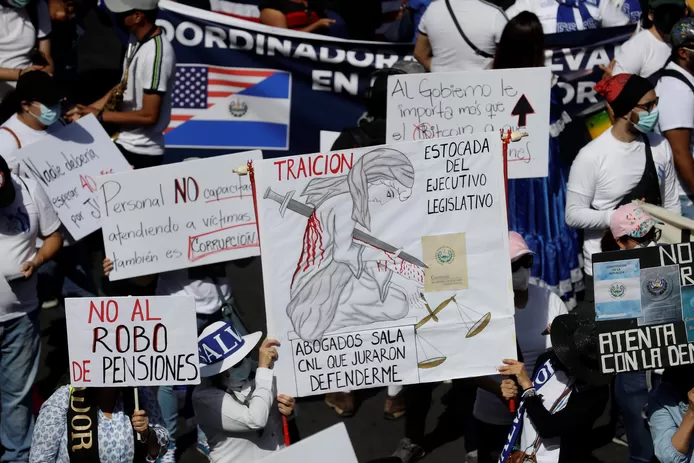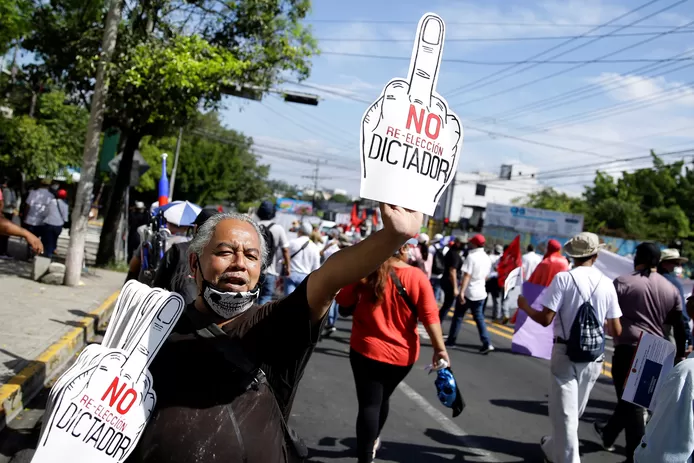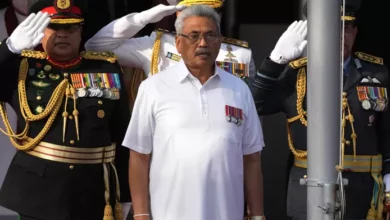Thousands of people on the streets against President El Salvador who made bitcoin second official currency

Thousands of people took to the streets in El Salvador on Sunday to protest President Nayib Bukele’s policies, in particular his decision to make bitcoin the country’s second official currency.
“Bitcoin, scam”, “no to dictatorship”, “done with authoritarianism”,… These are some of the slogans that can be read on the banners of the protesters. The protest follows calls from the various left and right parties and all kinds of associations.

“People are starting to get tired of this authoritarian, anti-democratic government. It is leading us straight to the abyss with its bad ideas that hurt our economy, like bitcoin,” said Ricardo Navarro, the president of the ecologist movement Cesta, which is co-organizing the march.
El Salvador, on September 7, became the first country to make bitcoin a legal tender. This puts the cryptocurrency on the same level as the US dollar, which became the country’s official currency 20 years ago.

Savings on bank charges
According to the government, bitcoin will allow Salvadorans to save $400 million in bank charges when sending money through the diaspora. In El Salvador’s economy, remittances from Salvadorans from abroad are major support, accounting for 22 percent of gross domestic product (GDP).
However, the International Monetary Fund, the World Bank, and the Inter-American Development Bank are concerned about El Salvador’s decision, especially because of the high volity of the cryptocurrency.
Bukele has been in power since 2019 and is very popular after he overthrew the traditional parties that held power in El Salvador for 30 years. However, his opponents and the international community blame him for authoritarianism.




